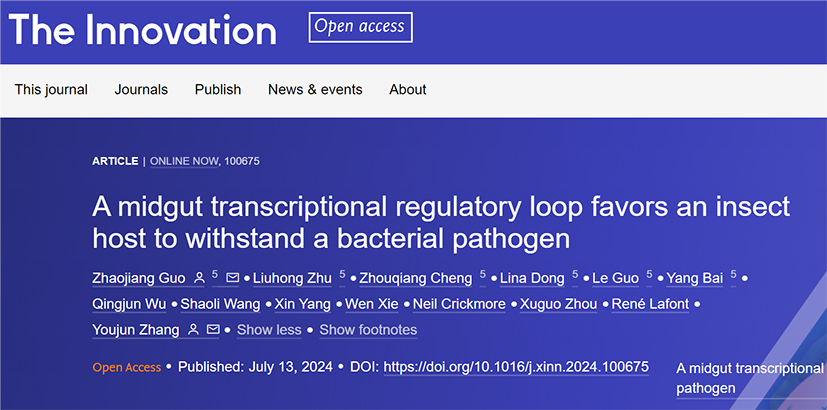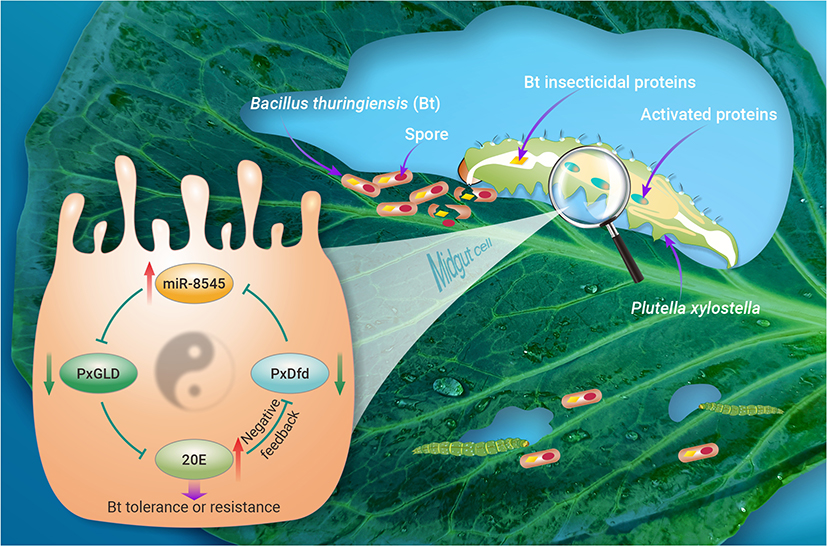Recently, researchers from Institute of Vegetables and Flowers (IVF) of Chinese Academy of Agricultural Sciences (CAAS), in collaboration with University of Sussex, University of Illinois Urbana-Champaign, and Sorbonne Université, reported their research results in a paper entitled “A midgut transcriptional regulatory loop favors an insect host to withstand a bacterial pathogen” published in the journal The Innovation.

Bioinsecticides and transgenic crops based on the bacterial pathogen Bacillus thuringiensis (Bt) can effectively control diverse agricultural insect pests; nevertheless, the evolution of insect resistance to Bt has seriously eroded the sustainable use of these Bt products. In previous studies, researchers have discovered that an increased titer of 20-hydroxyecdysone (20E) favors an insect host (Plutella xylostella) to enhance resistance of the Bt pathogen, however, the underlying regulatory mechanisms of the increased 20E titer is obscure.
In this study, researchers define the involvement of a midgut transcriptional regulatory loop (PxDfd/miR-8545/PxGLD/20E/PxDfd) in modulating the availability of 20E in the process. Specifically, they found that PxDfd is a transcriptional inhibitor whose reduced expression increases the transcription levels of a midgut microRNA (miR-8545), which in turn represses the transcription levels of a newly identified ecdysteroid-degrading enzyme, glucose dehydrogenase (PxGLD). Downregulation of PxGLD decreases 20E degradation, increasing the 20E titer. Meanwhile, increased 20E triggers a transcriptional negative feedback loop to prevent 20E overproduction. The moderate increase in 20E titer in the midgut activates the MAPK signaling pathway, thereby enhancing Bt resistance. This study identifies an as-yet uncharacterized transcriptional regulatory loop of insect hormones for maintaining pathogen defense in insects, which further expands the immunological landscape of classical insect hormones and the molecular basis of host-pathogen coevolution.

Figure 1. A proposed model for the midgut transcriptional regulatory loop that modulates Bt tolerance/resistance in P. xylostella.
The research was supported by the National Natural Science Foundation of China, the earmarked fund for CARS, the Beijing Key Laboratory for Pest Control and Sustainable Cultivation of Vegetables and the Science and Technology Innovation Program of the Chinese Academy of Agricultural Sciences.
More information can be found through the link: https://www.sciencedirect.com/science/article/pii/S2666675824001139
By Zhaojiang Guo (guozhaojiang@caas.cn)